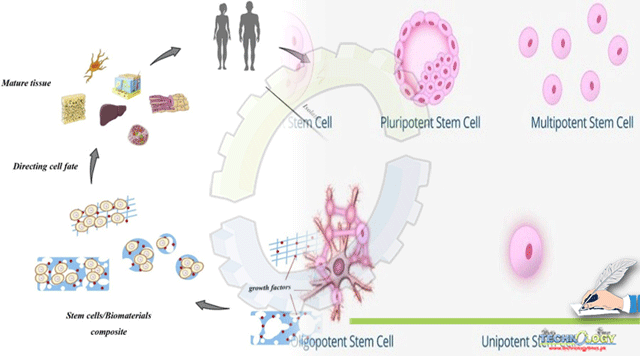Humans arise from zygote, a cell that will form all kinds of cells. The ability of earliest stages of an embryo to give rise to different cell types decreases over time. The change of this multipotency (ability to develop into multiple cell types) into unipotency (dedicated to only one cell type) is similar to the educational trajectory from school to university.

By Jamshed Arslan, PhD
From school to university: Multipotency to unipotency
The school curriculum includes a whole array of subjects to shape one’s mind. Based on schooling, one can become a multi-talented person, having some idea of literature, chemistry, biology, physics, mathematics and so on. In this sense, schoolchildren are the multipotent stem cells (MSCs) of a nation.
As you move from school to university, you dig deeper into an ever-reducing number of specialized subjects. For example, if you have chosen the route of medicine, your focus shifts towards biology rather than physics or mathematics. This is like MSCs that can develop into many cell types. However, what an MSC actually becomes depends on what kinds of growth factors it receives. The development of an MSC to unipotent stem cell specialized into only one kind of cell is like the growth of a child into an adult.
Destiny of stem cells: Neuronal vs adrenal
In lab settings, if you want your MSCs to become neurons, you will feed MSCs with specific growth factors. To make sure your MSCs do not become something else, you will need to add growth inhibitors against any non-neuronal factors present in the growth medium of MSCs. Likewise, if you want them to be glandular cells that secrete adrenaline, a hormone that raises heart rate and blood pressure, you will have to feed MSCs appropriate growth factors and inhibitors that you will not give to the MSCs that are destined to become neuronal cells. In other words, growth of MSCs into specialized tissues depends on the nurturing environment.
Neurons are associated with the faculty of reason. In contrast, adrenaline is linked to body’s fear and fight response. Syllabus acts as a growth medium for small children who are the MSCs. If we want a glandular country, the choice of the syllabus contents will be very different from a neuronal nation that thinks before any action. The MSCs will grow to be unipotent and kids will grow to become adults. It is what is fed to the children that determines whether we become a nation of critical thinkers or a jingoistic country of warriors!